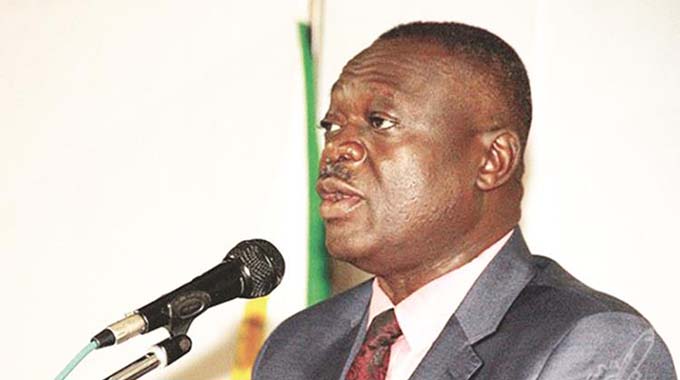Source: National land policy formulation process launched | The Herald February 25, 2019
Elita Chikwati and Ellen Chasokela
Lands, Agriculture, Water, Climate and Rural Resettlement Minister Perrance Shiri last week launched the formulation process of a comprehensive land policy which is expected to enhance access to land, land use planning and management, productivity and sustainable utilisation of land.The process would be guided by the Food and Agriculture Organisation (FAO) Voluntary Guidelines for responsible Governance of Tenure (VGGT) and would be aligned with the African Union (AU) Framework Agenda 2063 and guidelines on land policy in Africa. The process is expected to take up to 18 months.
There will be two other launches in Bulawayo covering Matabeleland North, Matabeleland South and Midlands provinces and in Mutare covering Manicaland and Masvingo. Minister Shiri said a comprehensive gender sensitive land policy was critical for the achievement of Government’s vision 2030 which entails the nation becoming an upper middle income society.
He said the land policy should be home grown, with contributions from all stakeholders. Minister Shiri said the land reform had brought changes through addressing the land imbalances where 6 000 white farmers occupied 15,5 million hectares of agricultural land, while 8 500 indigenous farmers owned 1,4 million hectares.
“A gloomier situation prevailed in the communal areas where communal farmers remained squashed in drier areas of ecological regions, he said. The land reform was, therefore, unavoidable. A record 300 000 families have been resettled countrywide, drastically changing the country’s land ownership structure, increasing small holder participation in agriculture.”
Minister Shiri said the greater percentage of Zimbabwe’s population depended on agriculture and other land-based livelihoods.
“With land being a finite resource, it is impressive that a comprehensive and gender sensitive land policy be put in place, he said. I envisage the policy document will not only enhance equal access to land, productivity and sustainable utilisation of land, but will also take into cognisance various global discourse and benchmarks.
“In light of the significant changes to the land ownership structure and production patterns ensuing principally from the Fast Track Land Reform programme, the needs to mitigate the effects of climate change, technological advances, and international best practices among others, Government is compelled to adopt a comprehensive gender sensitive national land policy.”
Minister Shiri said the policy should integrate land administration in a holistic manner, with aspects that include land tenure, access to land, land use planning, land information management, land disputes resolution, environmental sustainability, management of wildlife, forestry and water.
He applauded FAO and other developmental partners for offering technical support in the review of the land policy.
“Over the years, my ministry has received support from other development partners on aspects related to the land policy review, said Minister Shiri.
UNDP, with the assistance of the European Union, has assisted my ministry in updating the land registry, developing a land audit methodology, while the World Bank through the Comprehensive Land and Agrarian Reform programme (CLARP) supported the preparation of technical papers on land tenure, valuation and compensation among others.”
FAO sub-regional coordinator for Southern Africa, Dr Alain Onibon, said the country should now focus on putting land to optimum production and include women and the new generation.
“FAO will use its convening powers and play its role as honest broker for the land policy dialogue, as well as assist Government to bring together all interested stakeholders to ensure an evidence-based policy formulation process, he said.
The post National land policy formulation process launched appeared first on Zimbabwe Situation.




